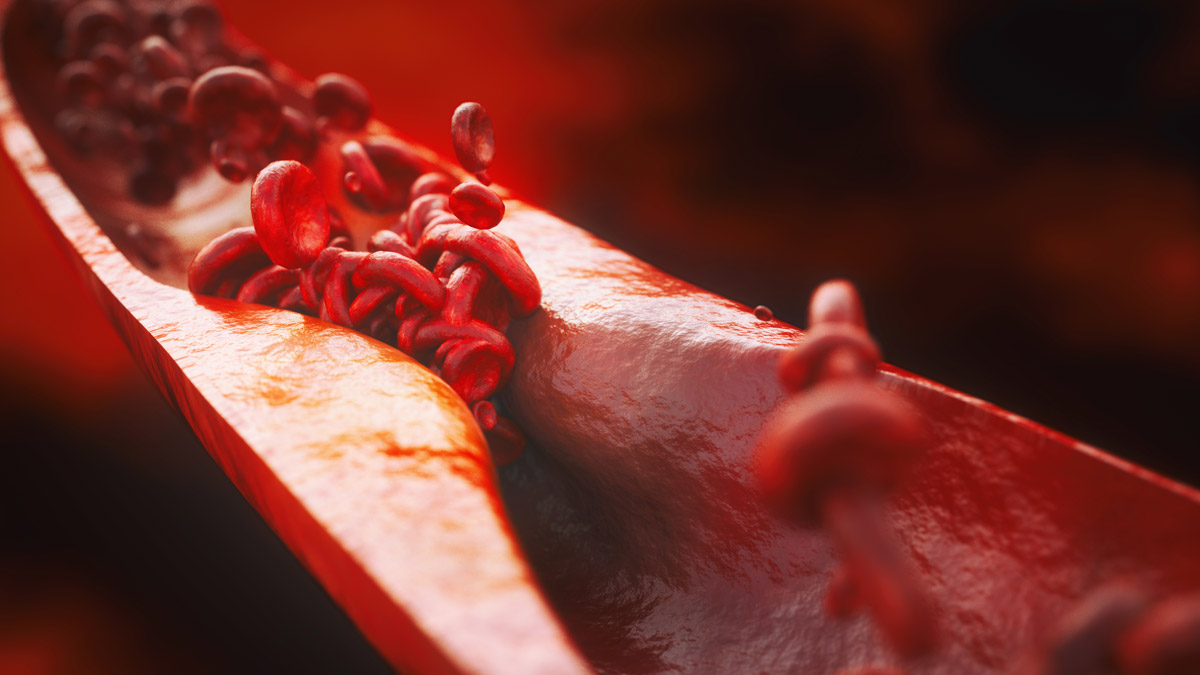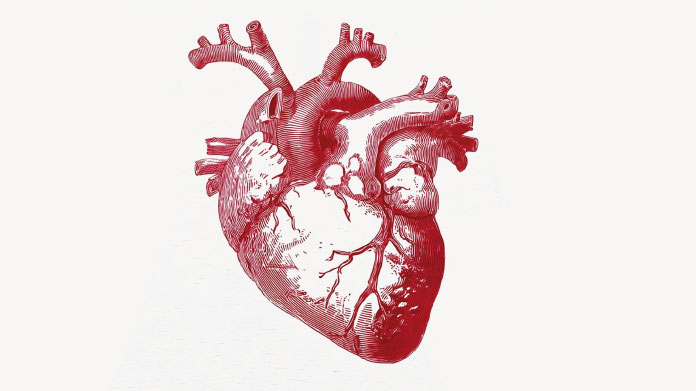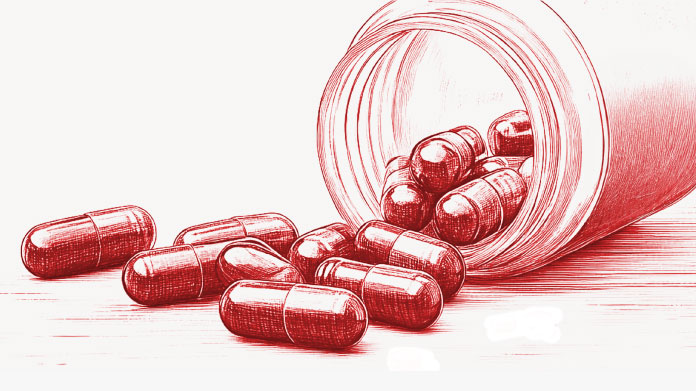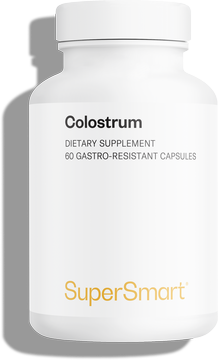Three effective ways of reducing your risk of stroke
Stroke does not tend to be a chance occurrence: studies show that simple dietary measures can lower the risk by 80%.

If someone close to you has already had a stroke then you’ll know that it’s probably one of the worst things that can happen to you in life. Only 1 in 10 people make a full physical and mental recovery while the remainder suffer disabling effects and almost 40% die in the months that follow.
What’s worse is there are no early warning signs of the momentous event to come. It’s brutal and unpredictable. One day, a fatty plaque becomes detached from a blood vessel wall and gets quietly carried along in the bloodstream until it finally becomes stuck in a narrowed artery. That’s the moment everything gets turned upside down: the plaque’s obstruction of the vessel abruptly interrupts the blood supply with the result that thousands of nerve cells, which literally depend on this artery to survive, are deprived of oxygen.
If nothing is done in the hours that follow, the nerve cells die of asphyxia, eliminating a large part of the neuronal circuits responsible for complex functions such as tactile sensitivity, speech, balance … If the damage is not too great and the victim is still young, neuronal plasticity enables these circuits to be rebuilt, though it does take time. If not, which is more often the case, nothing is ever the same again.
The consequences of a stroke are truly frightening and it’s hardly surprising that most people don’t want to hear about them: they secretly hope that they’ll slip through the net. But by refusing to face reality, they put themselves at an unnecessarily increased risk. Stroke does not tend to be a chance occurrence: studies show that simple dietary measures can lower the risk by 80%.
Three dietary factors that reduce the risk
So if we know that there are a number of determinants which increase the likelihood of having a stroke such as physical inactivity, hypertension and type 2 diabetes, are there any factors which have the opposite, ie, positive, effect on risk?
There are at least three such factors which can be easily incorporated into your life and which also offer major benefits for many other diseases. A group of scientists reviewed almost 400 studies published over the last 30 years in order to ascertain the kind of diet that can best help prevent stroke (4). It seems there are three main steps which can help cut the risk of stroke by at least 80%.
Increasing potassium intake
This is without doubt the best way of reducing the risk of stroke. In 2017, this group of researchers from Birmingham University showed for the first time that low potassium intake promoted rigidity of arteries but that increasing its intake helped prevent the calcification process (5). Though potassium is found in almost all fruits and vegetables, the sharp decline in consumption of these foods has undoubtedly contributed to the huge rise in incidence of stroke … While requirements for potassium are estimated at 4700mg a day, it’s thought that actual intake in Western societies may barely reach 2300mg in women and 3100mg in men (6).
Foods rich in potassium: all fruits, vegetables and pulses, particularly white beans, pumpkin, spinach and bananas.
Potassium supplements: Potassium Bicarbonate (officially recognized for optimising and maintaining normal blood pressure)
A high magnesium diet
The second observation made by the researchers conducting the meta-analysis was that people with a high magnesium intake had a lower risk of stroke. The body needs this mineral to function properly. It is vital for cardiac function: it plays a direct role in the metabolism of fats and helps regulate blood pressure, two mechanisms involved in stroke. It is magnesium’s dilating effect on blood vessels which is probably its key benefit in reducing the risk of stroke.
Foods rich in magnesium: in general, pulses, seeds and nuts, and in particular, soya beans, almonds, spinach and chocolate.
Magnesium supplements: Magnesium Orotate (which contains eight different forms of magnesium) to be taken with food.
Vitamin B9 supplements
A more recent meta-analysis that looked specifically at stroke and cardiovascular problems showed that supplements of vitamin B9 (also called folate) reduce the risk of stroke by between 20% and 70%. This is hardly surprising: vitamin B9 (folate) supplements such as SuperFolate are already officially recognized for optimising and forming blood cells (8). Vitamin B9 is also found in meat and vegetables but levels are significantly depleted by cooking, storing and freezing.
References
- Sacco RL, Wolf PA, Gorelick PB. Risk factors and their management for stroke prevention: outlook for 1999 and beyond. Neurology 1999; 53 : S15–24.
- Ding EL, Mozaffarian D. Optimal dietary habits for the prevention of stroke. Semin Neurol. 2006 Feb;26(1):11-23. Review.
- Yong Sun, Chang Hyun Byon, Youfeng Yang, Wayne E. Bradley, Louis J. Dell’Italia, Paul W. Sanders, Anupam Agarwal, Hui Wu, Yabing Chen. Dietary potassium regulates vascular calcification and arterial stiffness. JCI Insight, 2017; 2 (19) DOI: 10.1172/jci.insight.94920
- Hajjar IM, Grim CE, et al. Impact of diet on blood pressure and age-related changes in blood pressure in the US population: analysis of NHANES III. Arch Intern Med. 2001;161(4):589-593.
- EFSA Opinion 2010;8(2):1469
- Sabatier M., Arnaud M.J., Kastenmayer P., Rytz A., Barclay D.V. Meal effect on magnesium bioavailability from mineral water in healthy women. Am. J. Clin. Nutr. 2002;75:65–71.
- Tian, T., Yang, K.-Q., Cui, J.-G., Zhou, L.-L., & Zhou, X.-L. (2017). Folic Acid Supplementation for Stroke Prevention in Patients With Cardiovascular Disease. The American Journal of the Medical Sciences, 354(4), 379–387. doi:10.1016/j.amjms.2017.05.020
Keywords
2 Days
Great customer service - responsive …
I ordered from them and my item was unavailable for sometime. I was super happy when they reactivated my order and shipped my item which arrived very quickly. Great customer service.
Ruth Rueter
3 Days
Super fast shipping
Super fast shipping
Donald Borling
6 Days
Reputable companysearch and the number of…
The research and the number of selection of products.
NAKHJAVAN Shervin
19 Days
The Anti Aromatase is a great product
The Anti Aromatase is a great product. You just need to have constant inventory. Recently this product has been out of stock.
GEORGE Verne
21 Days
Great help on chat
Great help on chat. Knowledgeable and friendly.
Jason Argos
24 Days
Customer service was fast and friendly.
Customer service helped to stop the transaction process of the subscription. I appreciated that.
Greenie
24 Days
I order here due to the high quality of…
I order here due to the high quality of the products and the quick delivery of items - thank you
Barbara J
26 Days
SuperSmart's Eye Pressure supplements: highly recommended!
I purchase SuperSmart's Eye Pressure supplements regularly for over 5 years, and gotta say they are truly a wonderful product for my Glaucoma. Highly recommended if you have eye pain from your Glaucoma.
D. Martinez
30 Days
Quick service
Quick service
MONELL
31 Days
Speedy service.
Speedy service.
ROSENTHAL Marvin
35 Days
Clear website- Efficient
Clear website. Excellent search engine and fast delivery!
Mohamad Hussein
37 Days
They have great products.
They have great products.
Vickie
37 Days
Great Shipping Time!
You Have A Great Shipping Time! Praise The Lord!
DMHoge
39 Days
Doctor Recommended!
Good pricing, very good availability, doctor recommended (couldn't find what I needed anywhere else), and it took only a week to arrive (which I can't complain about).
Al
40 Days
Great product and fast shipping
Great product and fast shipping
Marie


.jpg)


